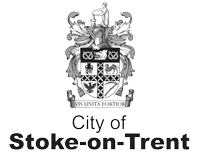SEND in the classroom or setting
SEND in the classroom or setting
All children are entitled to an education that enables them to:
- Achieve the best possible educational and other outcomes, and
- Become confident young children with a growing ability to communicate their own views and ready to make the transition into compulsory education
- Fulfil their potential and work towards their aspirations.
Some children’s difficulties will be resolved through good quality teaching, reasonable adjustments and partnership working with families. Some children’s or a young person’s difficulties may fall in the definition of SEND.
Note for Young Adults: The whole process described is available to Young Adults, over the age of 16 years, making their own decisions.
Resolution of any concerns at this stage will be through talking to the keyworker, class teacher, SENCO or Senior Leader in the setting.
Children and Families Act 2014 Part 3
SEND Code of Practice (2014) Chapters 5 & 6
The Definition of SEND
When a child or young person has special educational needs:
1) A child or young person has special educational needs if he or she has a learning difficulty or disability which calls for special educational provision to be made for him or her.
2) A child of compulsory school age or a young person has a learning difficulty or disability if he or she:
- Has a significantly greater difficulty in learning than the majority of others of the same age, or
- Has a disability which prevents or hinders him or her from making use of facilities of a kind generally provided for others of the same age in mainstream schools or mainstream post-16 institutions.
Where a setting, including a maintained nursery school makes special educational provision for a child with SEN they must inform the parents / main carers. All settings should adopt a graduated approach with four stages of action: Assess, Plan, Do and Review.
Speak to the Keyworker / Class Teacher
If you are concerned about your child’s progress, then talk to your child’s keyworker or class teacher as this could be resolved by good quality teaching and working together.
Ask the keyworker or class teacher if they have any concerns about your child. Or ask:-
- Is my child making progress?
- Is my child making age-related progress?
- Is my child reaching developmental milestones?
- Is my child struggling with any particular area of learning?
- How can we work together to support my child’s learning?
Many of your concerns may be dealt with by the key worker or class teacher who will monitor their progress. If your concerns continue, then the SENCO may become involved.
Where progress continues to be less than expected the keyworker or class teacher will:
- Informally gather learning evidence
- Gather parent, child or young adult views
- Identify if this is a special educational need.
Meanwhile changes to ensure better progress may be put in place to resolve concern. The responses to the information gathered help identify particular needs.
Speak to the school SENCO (Special Educational Needs Co-ordinator)
What is a SENCo
A Special Educational Needs Co-ordinator (SENCO):
- In an early years settings there is a practitioner who has a specialist interest in working in Special Educational Needs and/or Disability (SEND).
- In a school this is a qualified teacher who has a specialist interest in working in Special Educational Needs and/or Disability (SEND), and is experienced or holds the SENCO Award.
For more details, please look at the:
- Setting brochure
- Setting or schools’ own website (links from this Local Offer)
- Setting SEN Information Report.
The keyworker or class teacher, and the SENCO will work together. The SENCO may suggest strategies to remove barriers to learning for your child. This may resolve the concerns you have and together you, your child, keyworker, class teacher and the SENCo will be able to decide the next steps.
Note: Research suggests that a positive working relationship between home and education improves the learning outcomes.
Assess, Plan, Do, Review
Where a pupil is identified as having needs, keyworkers, professionals and parents work together to take action to remove barriers to learning and put effective special educational provision in place.
This support will take the form of a four-part cycle - assess, plan, do, review. The plan is revisited, refined and revised to understand the child’s needs and secure good outcomes.
This is known as the graduated approach to identifying needs.
A Graduated Approach
The majority of children and young adults with Special Education Needs and Disability (SEND) will be supported within their mainstream setting through a graduated approach to identifying and meeting SEN.
The Graduated Approach can be seen as encompassing three levels of provision and support:
- Quality First Teaching can be seen as the basis of all provision and support.
- Targeted Provision and Support will focus on the identified area of need and may lead to provision which is ‘additional to and different from’. Parents, pupils and the relevant professionals will be involved in the cycle of assess-plan-do-review.
- Personalised Provision and Support will be used where the expected rates of progress are not achieved. Provision and support at this level will include advice from external agencies and professionals in collaboration with parents, children and young adults. The most complex educational needs would be met through an Education, Health, and Care Plan.
